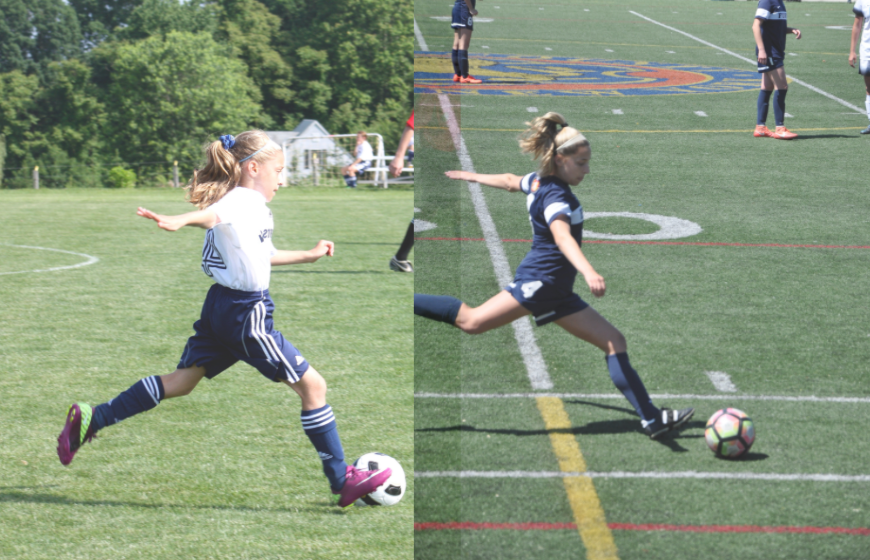
03 Aug Young Female Athlete, Celebrate You.
There are people who are going to criticize you.
There are coaches who are going to doubt you.
There are societal standards that are going to make you forget who you are.
Today’s article is a wake up call for young female athletes to have no tolerance for people and things that rob them of their energy and distract them from their passions.
This is my first guest post in over a year, and I couldn’t be more pumped because it’s also my first guest post featuring a young student-athlete. I want you all to hear from someone who is currently in the trenches as a young woman in sports.
Johns Hopkins University Women’s Soccer player, Jenny Zwerling, is here to share her journey through youth soccer, her struggles with body image, her college recruiting process, and how she found power in herself to lean into her talents.
This is a good one. Enjoy.
“You’re too short to ever play college soccer.”
“You have a dancer’s body… you’re a soccer player?”
“Wow, you are abnormally muscular for a girl your age.”
“Why do you miss so many parties and plans for soccer?”
“No one watches women’s soccer anyways.”
And the list goes on.
It’s tough out there for a female athlete.
Being a female in this world, for lack of a better word, is difficult. There are standards to meet as far as appearance, decisions we make, the way we act, and carry ourselves. Surrounded by doubts and hardships, we are judged based on appearance first then before our capabilities. Add in being a female athlete. It becomes more challenging.
I share with you snippets from MY story that I hope you can use when times get tough to remember you’re not alone in your goals as you face hurdles. I hope it helps another strong, motivated, and powerful female soccer player (or anyone for that matter) to use it to work hard and continue towards fulfilling your dreams.
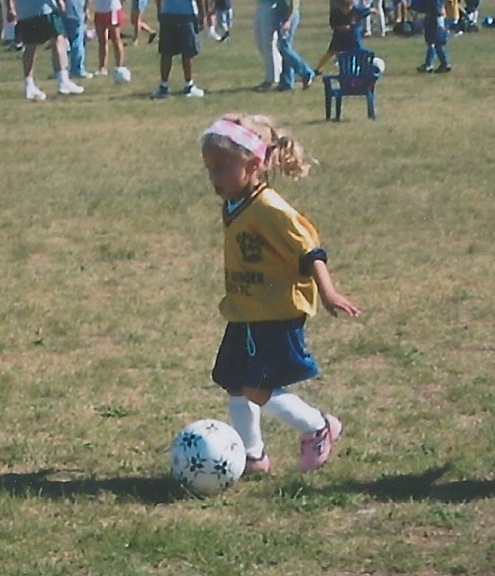
To give context: I grew up in a household where sports were a key staple in all of our lives. My mom was a competitive figure skater and runner. My dad played baseball as a child and ran track and cross country in high school and college. Sports were always on TV and a topic of discussion. The Yankees, Islanders, and Giants were our pride and joy (please don’t stop reading if you hate those teams). Exercise and working out were forms of therapy and a hobby for everyone in my household. My brother, who is six years older, had already chosen soccer as his sport of choice and therefore I was exposed to the game at a young age. So, I tried soccer, basketball (fail), softball (too much standing still for me), gymnastics (got too dizzy being upside down), track (loved it, but it wasn’t soccer), and competitive dance (loved it, but it wasn’t soccer). With my participation in all these different sports and activities, conflicts arose and soon it became “I can’t go to that, I have soccer.” When the time came, I hung up my softball mitt, dancing outfits, leotards, and chose my soccer cleats. I loved soccer. The perfect blend of teamwork, running, strength, and the need to use your mind just as much as your body. Its role in my life started to become bigger and bigger as time went on. In my mind I had four components in my life ranked in this order of importance: family, school, soccer, and friends.
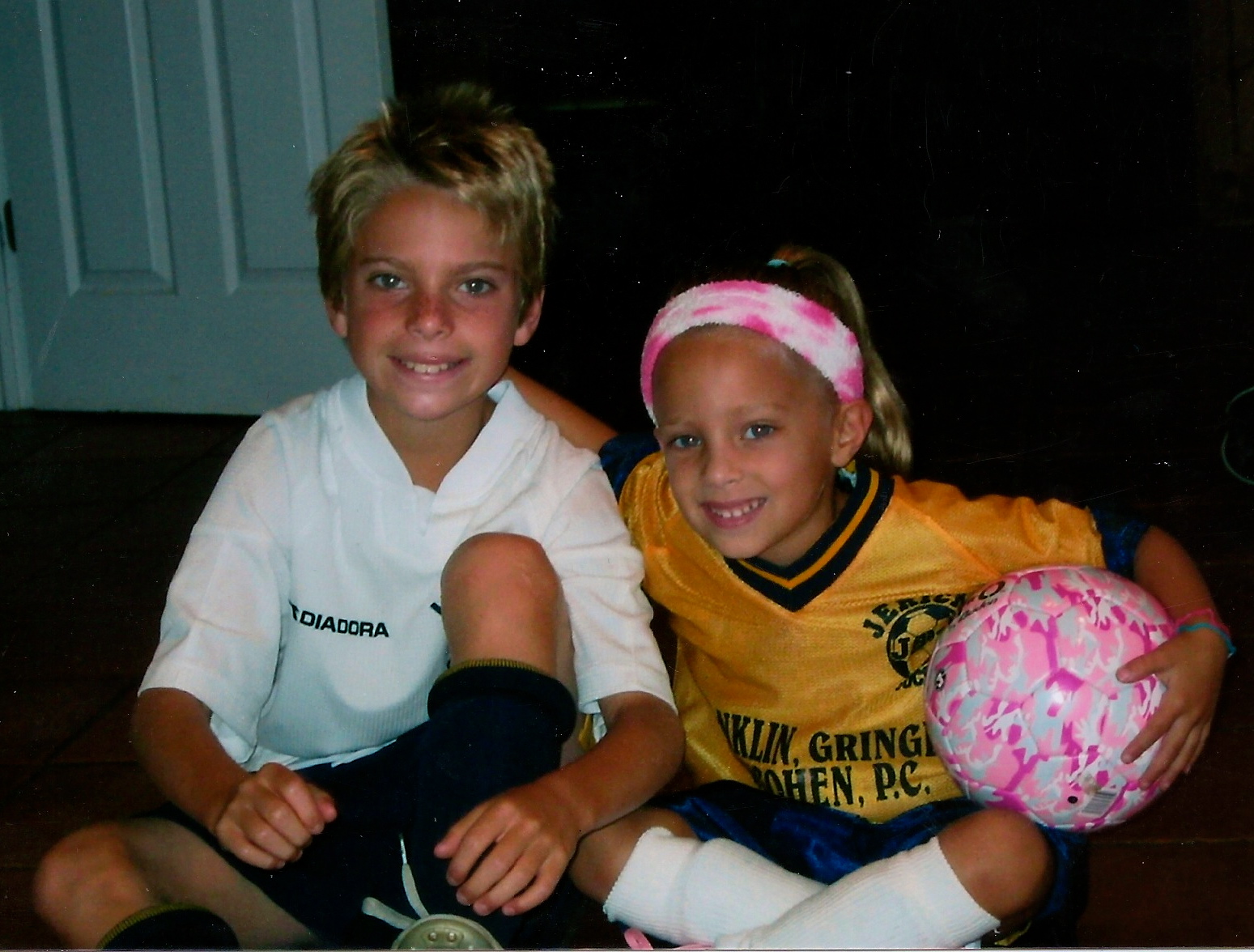
Committing to soccer: Once I made the decision to only play soccer, it was time to become serious. I am 5’2” and a half and at the time had an overall tiny frame. I started training with a soccer coach from my club team who doubled as my mentor and turned sports into a metaphor for life. When I thought I couldn’t run up the hill one more time, he proved me wrong. When I told him no way I can do x amount of pushups, he proved me wrong again. If I wasn’t nailing an upper right corner shot by the time the hour was up, well then I was staying until I did. Lights on or off on the field it didn’t matter. He instilled in me that in the game “first touch was everything” and that you have to be fully committed to make a dream happen, which meant tons of sacrifices, focus, and uninterrupted dedication. Because of him (and an older brother who played against me every day when there were no refs around) I grew the thickest skin of anyone on that field. Tough love was my mentor’s language and the countless hours spent with him helped lay the foundation for who I am today as a player on the field, and as a person with regard to my philosophy to get what I want in life. My drive, hard work, and hours spent practicing on the field have become a metaphor for how I look at life.
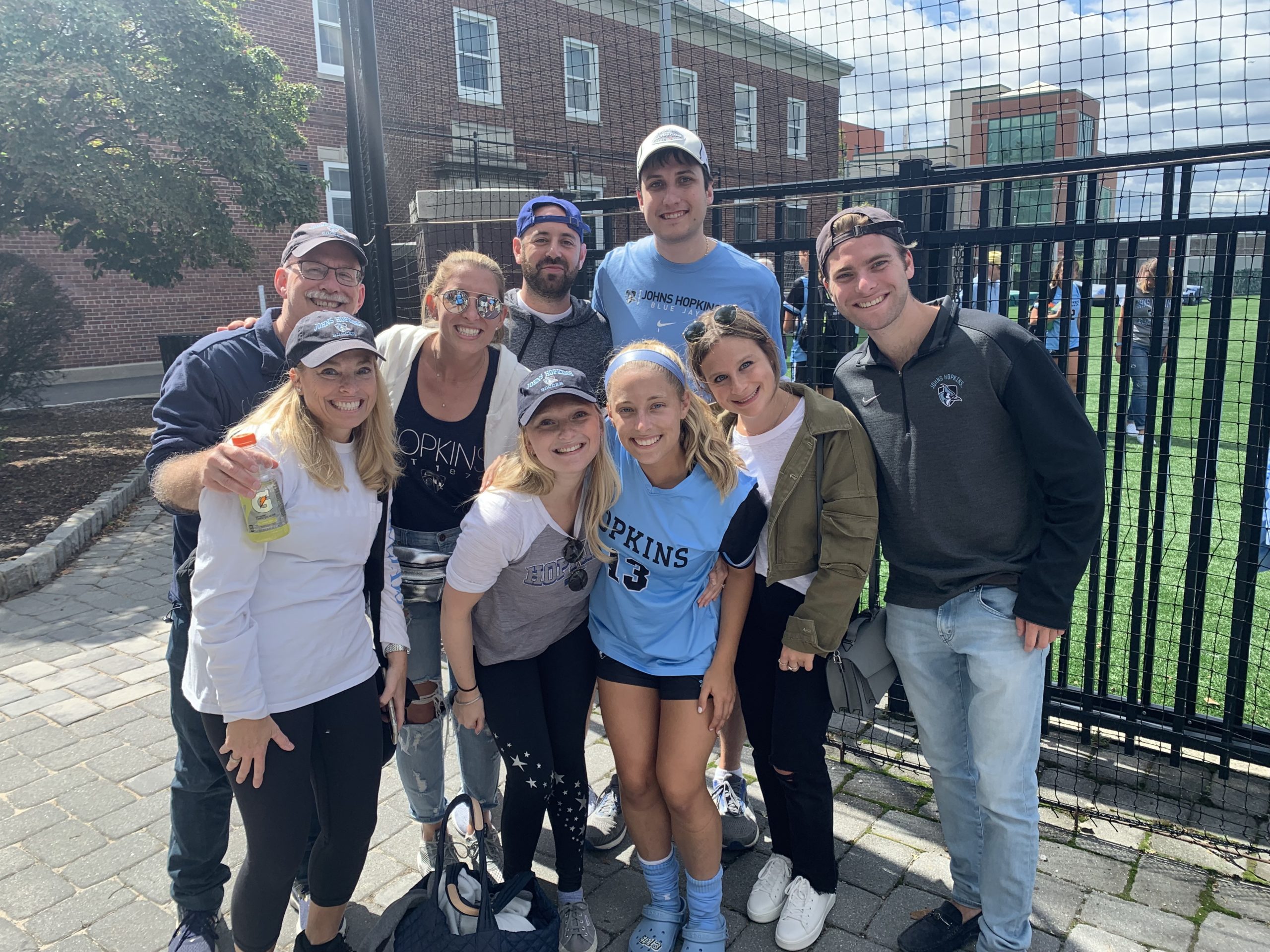
Bad coaches: Going to say this one loud and clear for the people in the back: not all coaches are going to be motivating or even helpful. Some will be awful. By awful I mean they will clearly pick favorites, put you on the bench, provide no feedback on how to improve, make rude comments and belittle you. I have had my fair share of coaches who quite honestly almost pushed me towards quitting soccer. It is sad that one person has the ability to rob a player of the joy and happiness that once was associated with playing a sport a person loves. I survived a lot of bleak moments due to coaches and I because of that want to help those going through similar paths do likewise. During those bleak times, I allowed myself to cry and express my frustration. Oh, there were tears. But, after feeling sorry for myself, I would learn to flip a switch. Don’t let the coach see how he or she is affecting you. Channel that anger towards the coach into your game and use it as fuel to work your a** off to prove that you deserve to be out there. Also, remind yourself why you are playing. Go play somewhere where the coach can’t see you (juggle alone, private training, pick-up games with strangers etc.). This will remind you why you love the game. Playing zero minutes one game doesn’t mean you are a bad player- it means you have a reason to improve. It may also mean that your team simply didn’t need your style of play out there given the opponent.
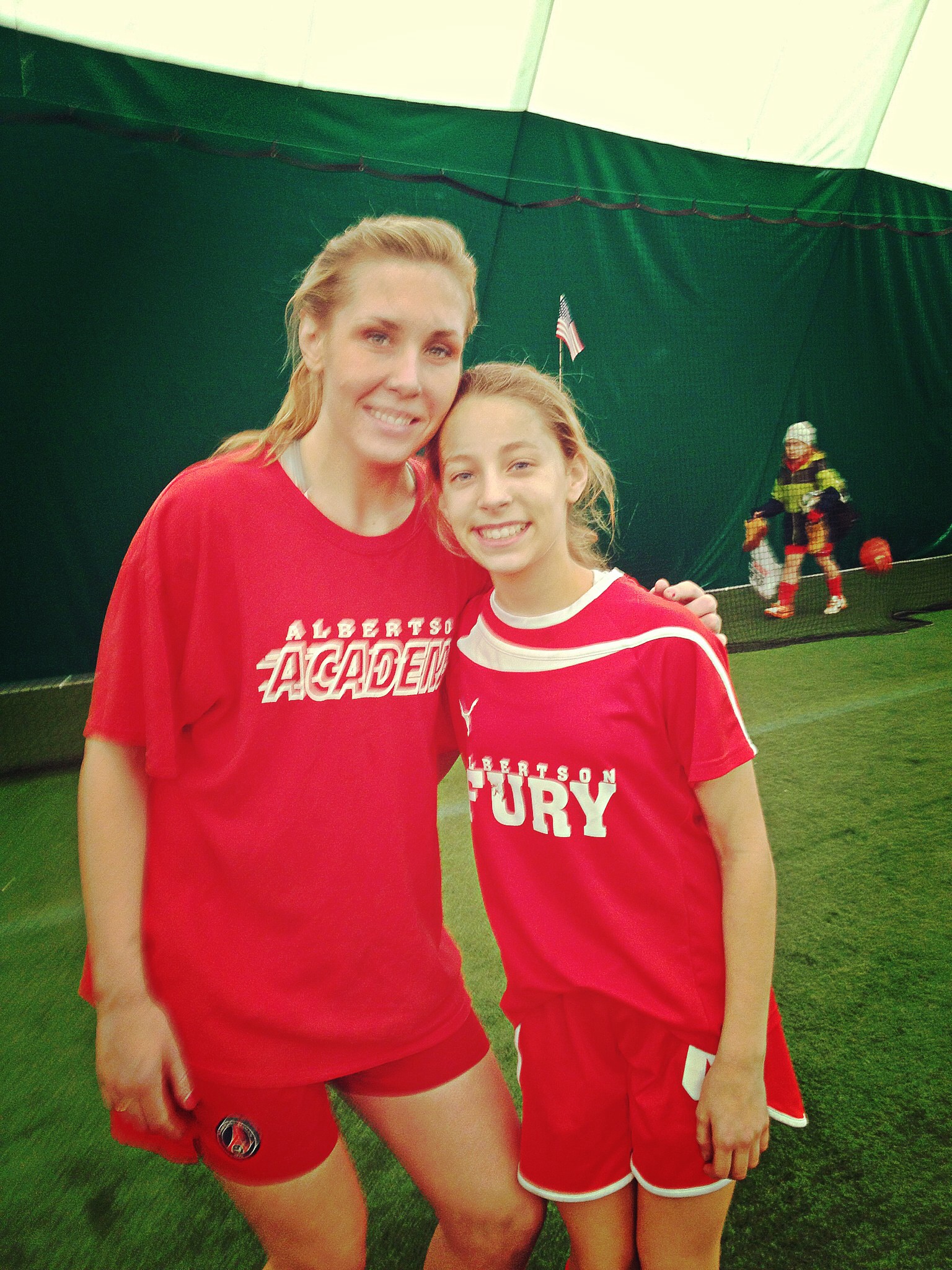
When the coach yells at you, don’t take it personally. It may mean that he or she believes you can do better and sees more potential in you. When a coach stops yelling at you, you should be worried (it means they’ve given up and don’t see a point in trying to get through to you). More importantly, never allow a coach to rob you of your self worth and ability on the field. You in are control of your mindset and how you respond in different situations. There are two outcomes when encountering a shitty coach: 1) you come to believe that you are a bad player, let negative thoughts fill your head, and start to play that way. 2) you shift your mindset and use your anger as a tool to help you to improve, keep asking the coach for constant feedback, and you believe in yourself despite the coach thinking otherwise. At the end of the day, what’s important is how you view yourself. You can’t let anyone else define you as the type of player you are. Play for yourself and never be satisfied with where you are (even if you are consistently playing full games). You are always replaceable so challenge yourself and work to improve. Playing for yourself will make dealing with those shitty coaches along the way a lot more bearable.
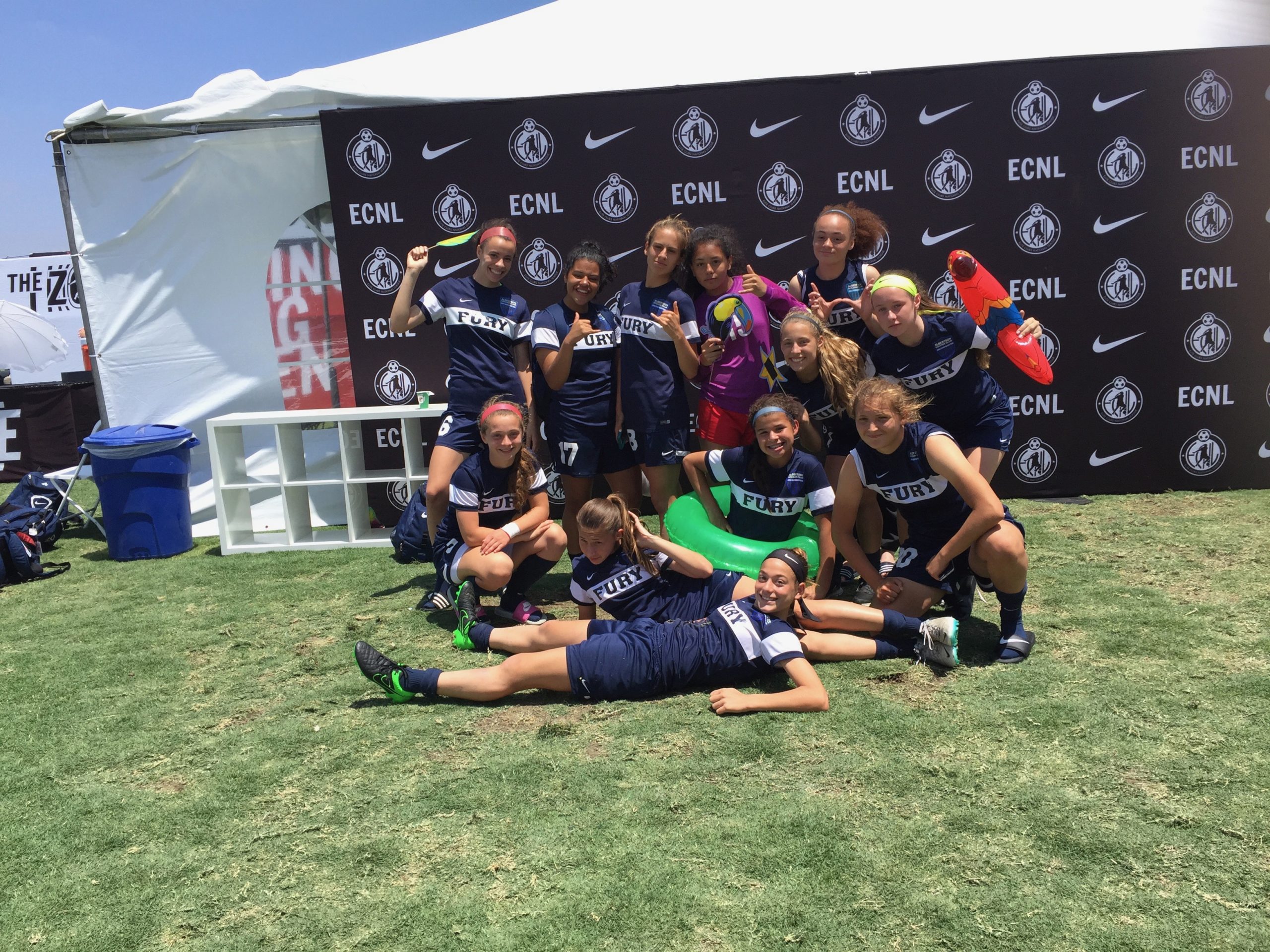
Doubt: During this time, as the role of soccer grew to become a bigger presence in my life, the discussion about playing in college began. I couldn’t imagine hanging up my cleats after high school and felt that if I could receive a good education while playing soccer that would be the best of both worlds. Soccer was my outlet when I felt stressed, helped me find some amazing like-minded friends, and always pushed me to become stronger. When I decided I would strive to play college soccer, a wave of insecurity crashed over me. Am I too small? Am I fast enough? Is my speed of play fast enough? Am I willing to say goodbye to hanging out with my friends as much? And the doubt continued. When I began looking at colleges, I received the same feedback: “you are a great player- technically and have great vision of the field- but the only negative is your size.” Not knowing how to improve my “size,” I would walk away defeated, angry and confused. Am I capable of ever being noticed? These are some of the constant thoughts that spiraled through my mind. We live in a very filtered world right now where people only want to share the good and the picture perfect side of themselves. There’s less vulnerability, authenticity, and honesty. But, it is OKAY to second guess yourself. When negative thoughts creep in (and they will) it is important to remember that no matter what you do you can’t please everyone, so just be the best version of YOURSELF. You will find people (and coaches in this sense) who celebrate who you are and what you bring to the table- even if it isn’t exactly what the next person has.
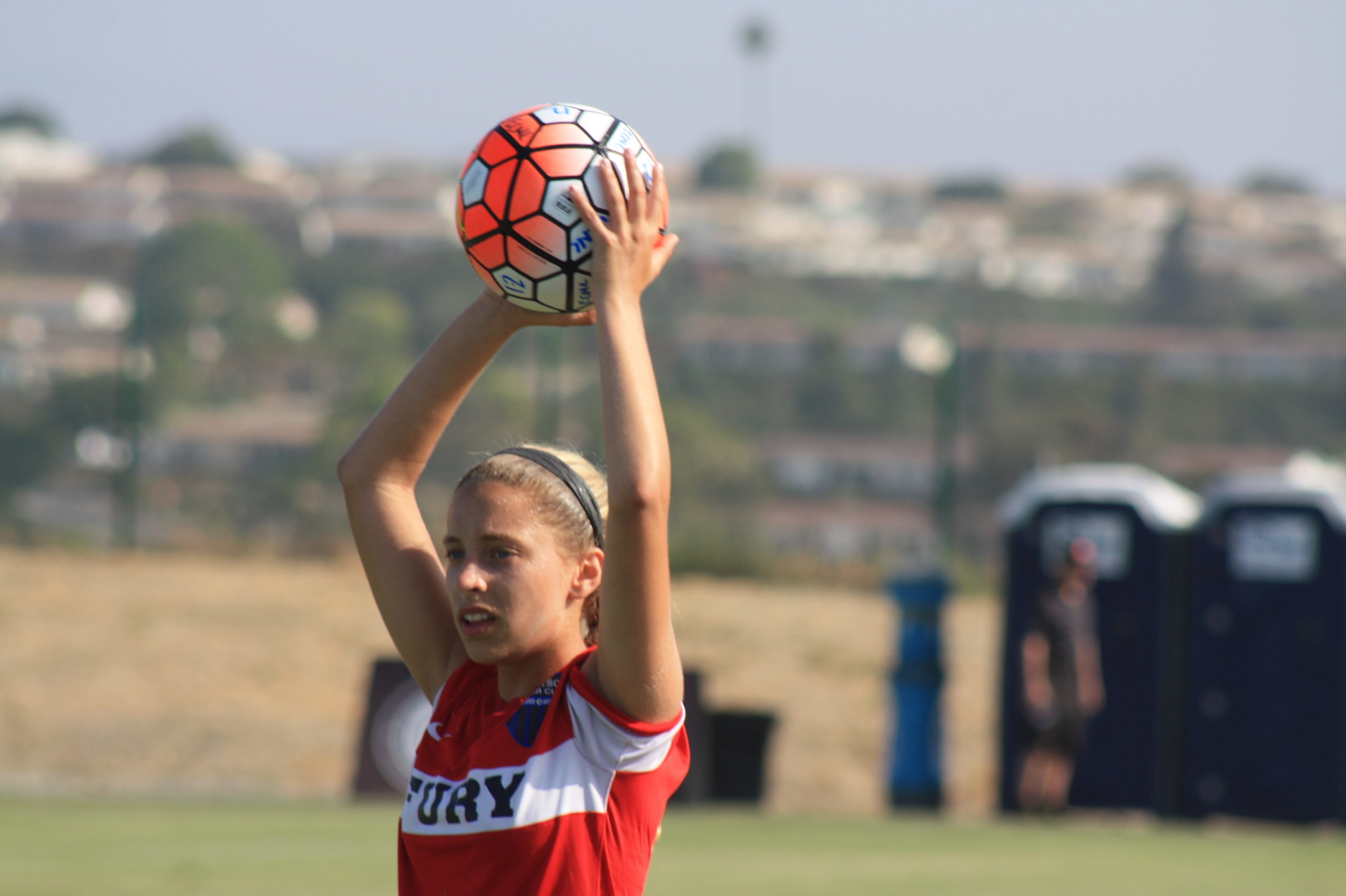
Why I was doing it: After being sick of hearing about my size, I made the commitment to being the most noticed player on the field. I would stand out no matter what it takes. I had to remind myself why I was doing this. And the answer was always because I loved to play. My parents always told me, the minute the game isn’t fun anymore is the minute I should stop playing. Before getting out of the car to warm up for a game or go to practice my parents always said “work hard and have fun.” And when boiled down to its core, that is what sports are all about. It is about surrounding yourself with people who have your back and want to you to succeed. It is about how you train your mind to react when you mess up on the field. It is about whether or not you stop running when you’re tired and becoming comfortable with the uncomfortable. It is about the cliche of “practice makes perfect,” but accepting the fact there is no such thing as perfect, and that you will truly and visibly improve if you put your energy towards it.
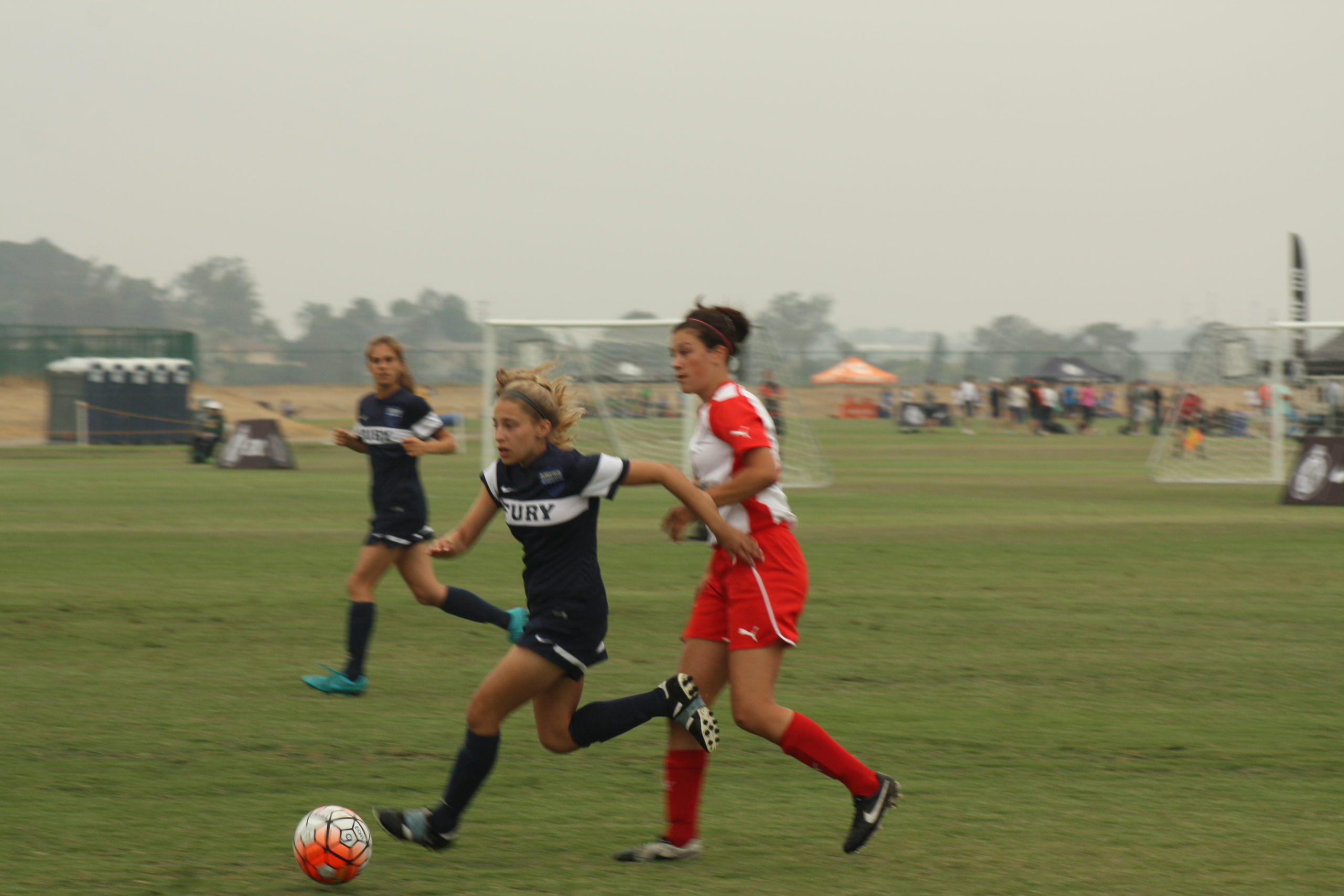
Living a paradox: I hit a wall of insecurity mid-way through high school about my game and body. Because I was so small and people would comment on that fact, I had to transform my body into a “soccer body” which meant building bigger leg muscles and increasing my upper body strength. At the same time, I went to a high school where I was one of two girls working towards becoming a college athlete. Every other girl focused (for the most part) on being as “skinny” as possible and finding a way to have the perfect look. I won’t lie to you. I felt out of place and extremely insecure with my bulging calves and bigger arms. With both the feedback about my height from soccer coaches while not looking like your “average teenage girl” I felt out of place in both my soccer world and school world. There was this constant battle between coaches telling me I was too small and to get stronger versus my high school friends and society’s expectations that females should not be “too bulky.” I wanted to have fun in ways that teenage girls “should.” I repeatedly told myself how soccer and the training would all be worth it and that there is both beauty and purpose in strength. Looking back, I wish someone had told me that the “ideal” female body doesn’t exist and that the best female body is one that you feel your best in.
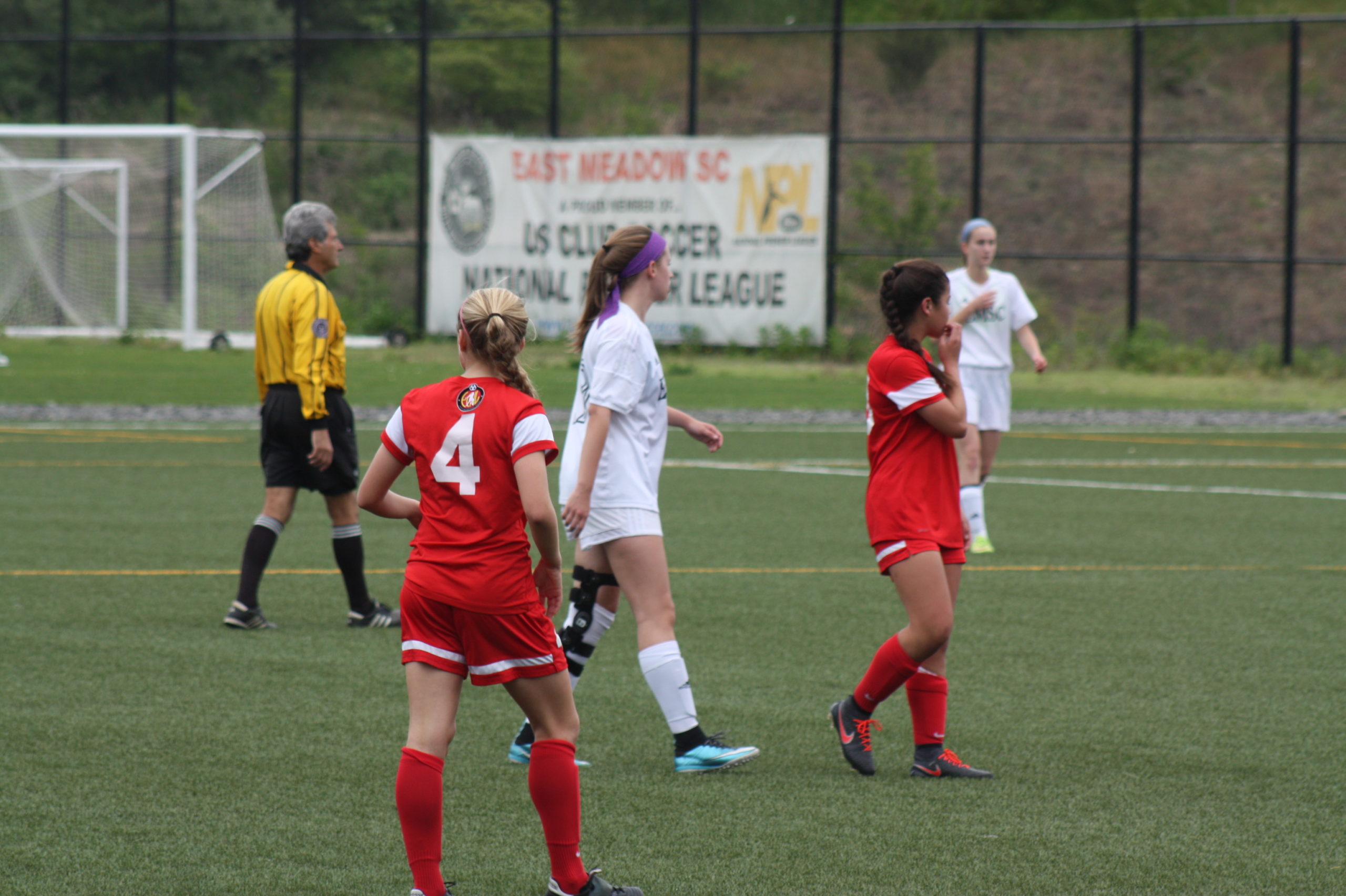
Beauty in strength: Now back to the important issue I mentioned earlier. Body image. Society already normalized the idea the females should never feel content in their own bodies. There are diets flashing on our screens to help us lose weight. Exercise programs that ensure we will be toned, skinny, and “not too bulky.” Magazines illustrating the standards of what the world views as beautiful. Now, add on being an athlete .With phrases like “you throw like a girl,” hearing that having big thighs are ugly, or that men are supposed to be stronger is discouraging. All of the weight and muscles that were added by training also became unwelcome. I was living a paradox: be as strong as I can on the field but as dainty as I can off the field to meet society’s standards for being a young female. I would count calories, try dieting, work out on off days, try to avoid super heavy lifting etc. There were days I felt miserable in my body. After going through diets and fighting the exhausting battles to be the best soccer player I could be while still looking feminine and petite, I gave up. I decided to listen to my body and fuel it with what it needed, do exercises that made me feel stronger, and accept the way I looked. I told my self over and over that being different isn’t a bad thing, it just meant I was allowing myself and was brave enough to be who I was meant to be, me.
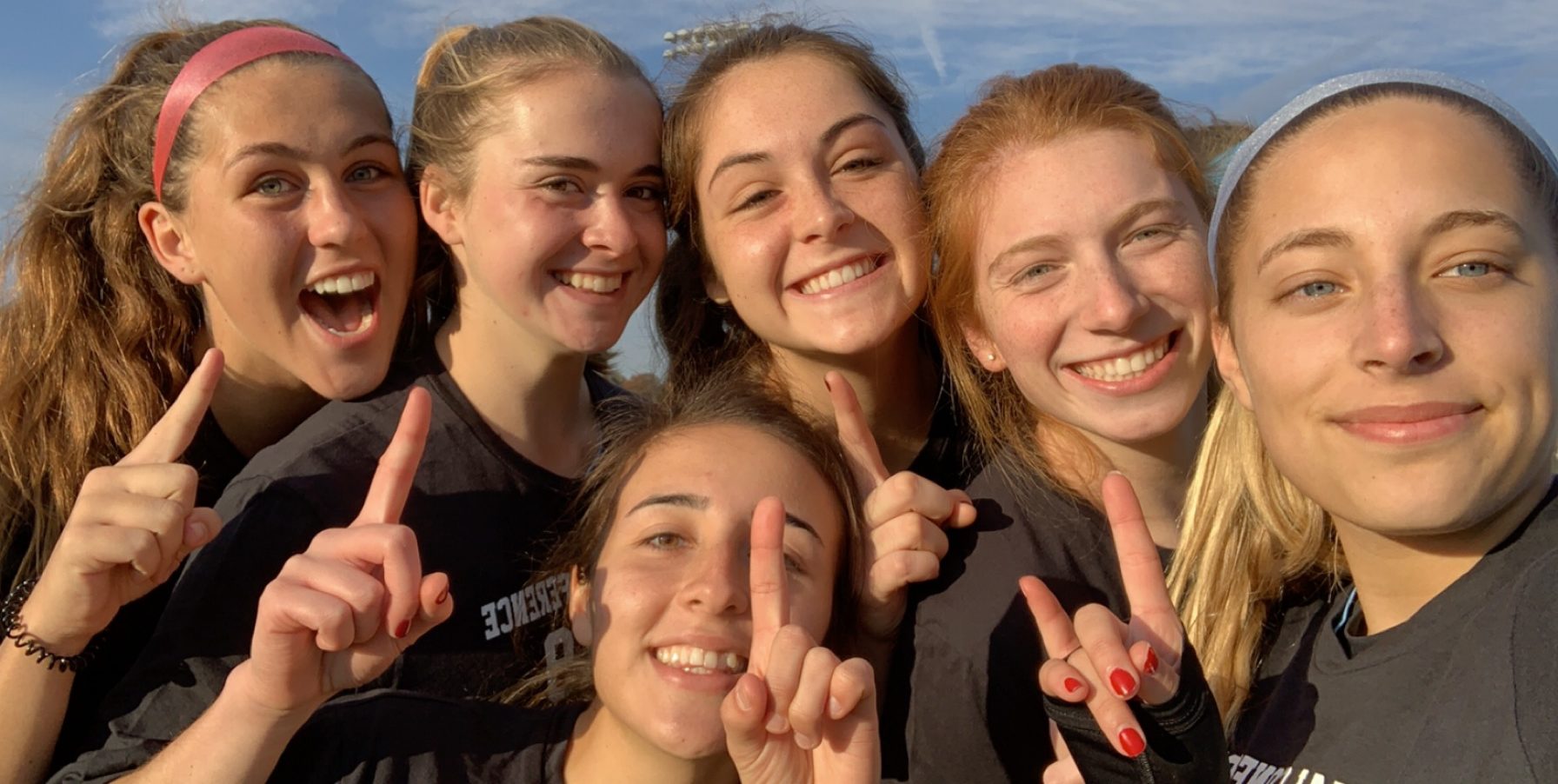
I don’t want to make it seem like I just woke up one day and accepted it. It takes time and cognitive effort to start loving yourself. But a way to start is by shifting your perspective. I started eating what I felt like eating and working out, not because I felt guilty if I didn’t, but because my body wanted to. For starters, again another “cliche,” it genuinely does not matter what people think of you. Most people who are spending time and energy commenting about other people’s bodies are either: unhappy in their own skin, jealous of you, or merely bitter people. After accepting the fact that those people don’t matter and there are no rules of what anyone “should” look like it is important to be able to really see how AMAZING your body is and what it can do.You can lift X amount of weights. You can sprint X distance at an unbelievable speed. You can do a move quick enough to beat a defender and assist a goal. The Serena Williams’, Christen Press’s, Lindsey Vonn’s and Simone Bile’s of the world wouldn’t be the best at what they do if it wasn’t for their unbelievable strength and bodies. Everyone is a DIFFERENT shape and size, but it is why we can all achieve DIFFERENT but amazing accomplishments.

Injuries: My Senior year of high school soccer season. Muddy field. Scored a goal and had an assist during my first game back from a sprained ankle. I get the ball with no one near me and try to turn and I hear a POP. Down I go, and so does the remainder of the season. It was my second time I dislocated my kneecap and I now needed knee surgery. I was 10 months away from playing college soccer and now had to fit in surgery, 6 months of recovery, and time for physical therapy in order to be ready for college preseason. To put it lightly, I was flooded with anxiety, depression, and utter sadness. How could this be happening? Why now? And the questions went on. After I had the surgery, my mental state was even worse. Not only was soccer taken away from me, but hanging out with friends during my last year before college, exercise, and minor things that I took for granted – walking, getting into bed, showering- were all a struggle. At the same time, years and years of work to pile on the muscle to be a strong athlete on the field, quickly withered away. It was like I woke up one day and hard work was robbed from me and I had to start back at square one.
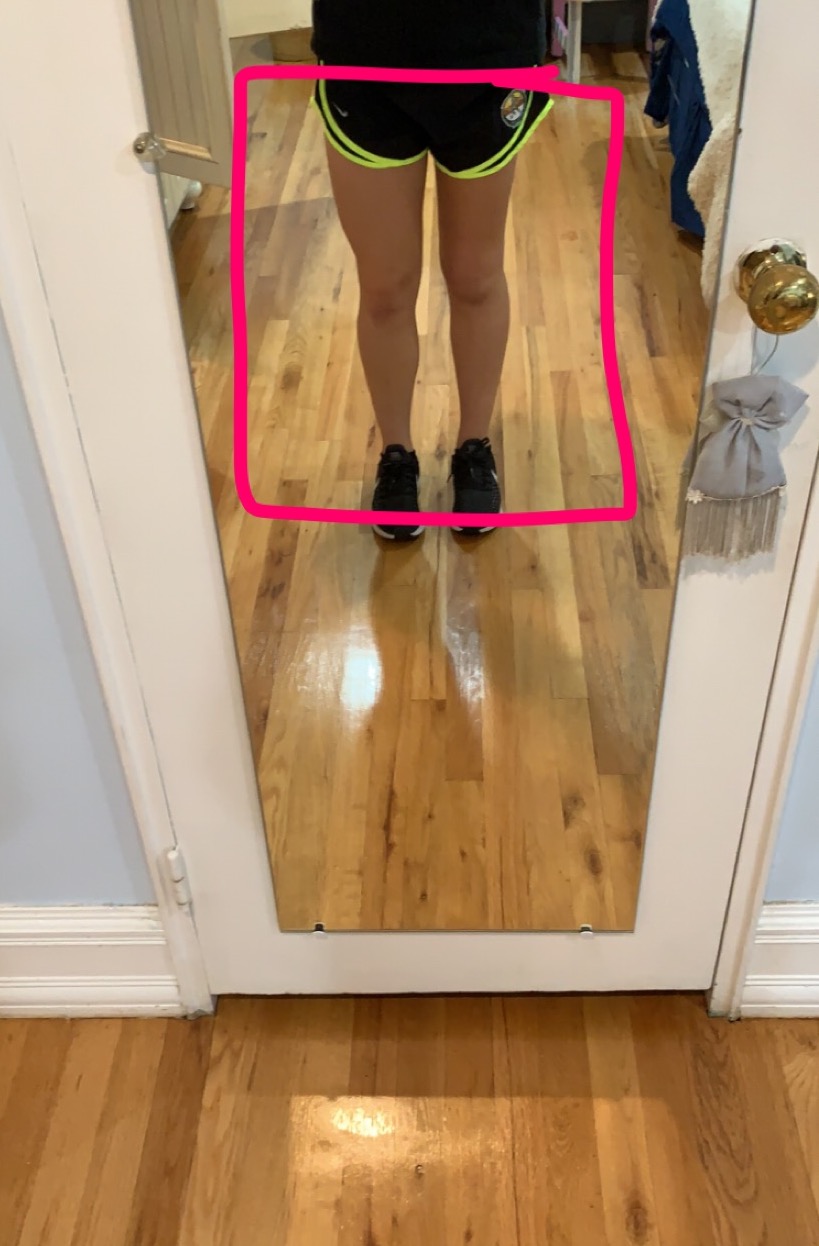
Simultaneously, I struggled with what I should and shouldn’t eat because I wasn’t able to workout or break a sweat. You see, injuries are a major test. It is normal in the beginning to feel sorry for yourself and just feel all the waves of feelings that come with it. However, despite the physical battle, it is all mental: control what you can control. I realized if I take this as an opportunity to push myself even harder than I would’ve if this didn’t happen then maybe I could be even stronger. Maybe my body needed this time to relax and regain momentum after months and months of hard work with no rest. I could control my mindset and attitude and decided how this setback was going to transform me. Now, all my focus was on becoming stronger than I was before the injury. Unfortunately, injuries are a big factor that comes with playing such an intense sport. Your mindset is the most important part of the recovery process. Listen to your body when it’s tired, take the warm up and cool down seriously, and keep in mind what you are putting in your body and the effects it has.
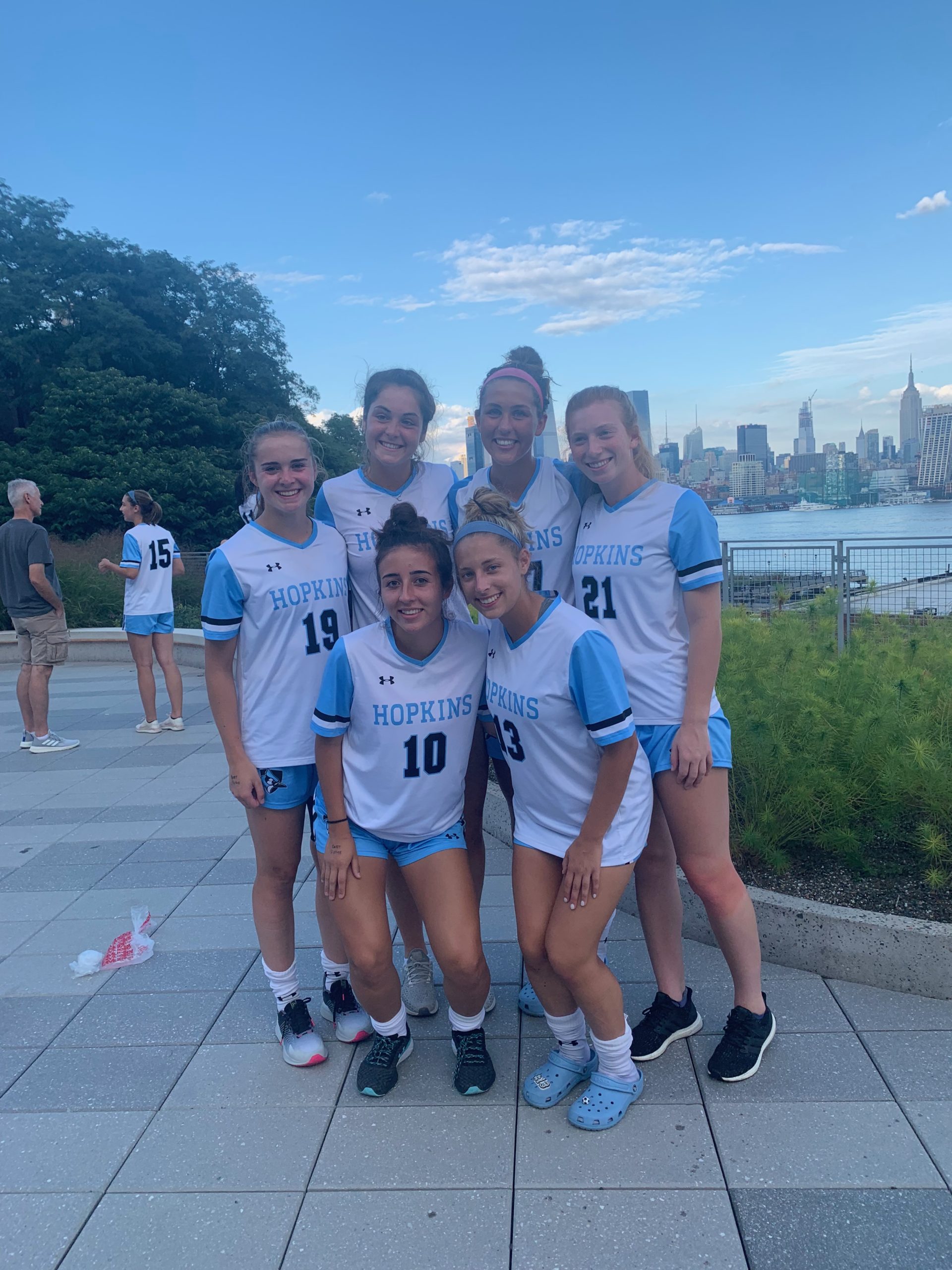
It works out… if you make it happen: Yes, I ended up playing college soccer at Johns Hopkins University, a place that challenges me both academically and as a soccer player. At the end of the day, I didn’t want to be at any of those programs where I was told I was too small. They didn’t have the ability to see past how size isn’t a determining factor of how good player is. It is important to find the place that welcomes you as a player but also loves you as a person. I got to prove those awful coaches wrong. I showed my classmates who called me crazy for missing out on things why I did it. I was living proof that believing in one’s self and keeping priorities in line even when surrounded by temptations pays off. Throughout both the struggles and my journey I understood the meaning of one of life’s biggest lessons; the most important relationship you have is the one with yourself. Are you being nice to yourself? Are you listening to your body when it is tired? Are you fueling it properly? Are you doing what makes YOU happy? Are you doing things that are challenging you? At the end of the day, it is your life and it is important to remember why you do what you do. It is important to instill confidence in yourself and feel pride in your accomplishments. Own all of the mini milestones along the way and never settle for what you believe you deserve more of. If you love and take care of yourself, you will attract and be surrounded by people and things that make you happy. It wont always be easy but if you train your mind to ask “how can this challenge make me a better person tomorrow” then you will continue to improve and become that always evolving ideal person YOU want to become.
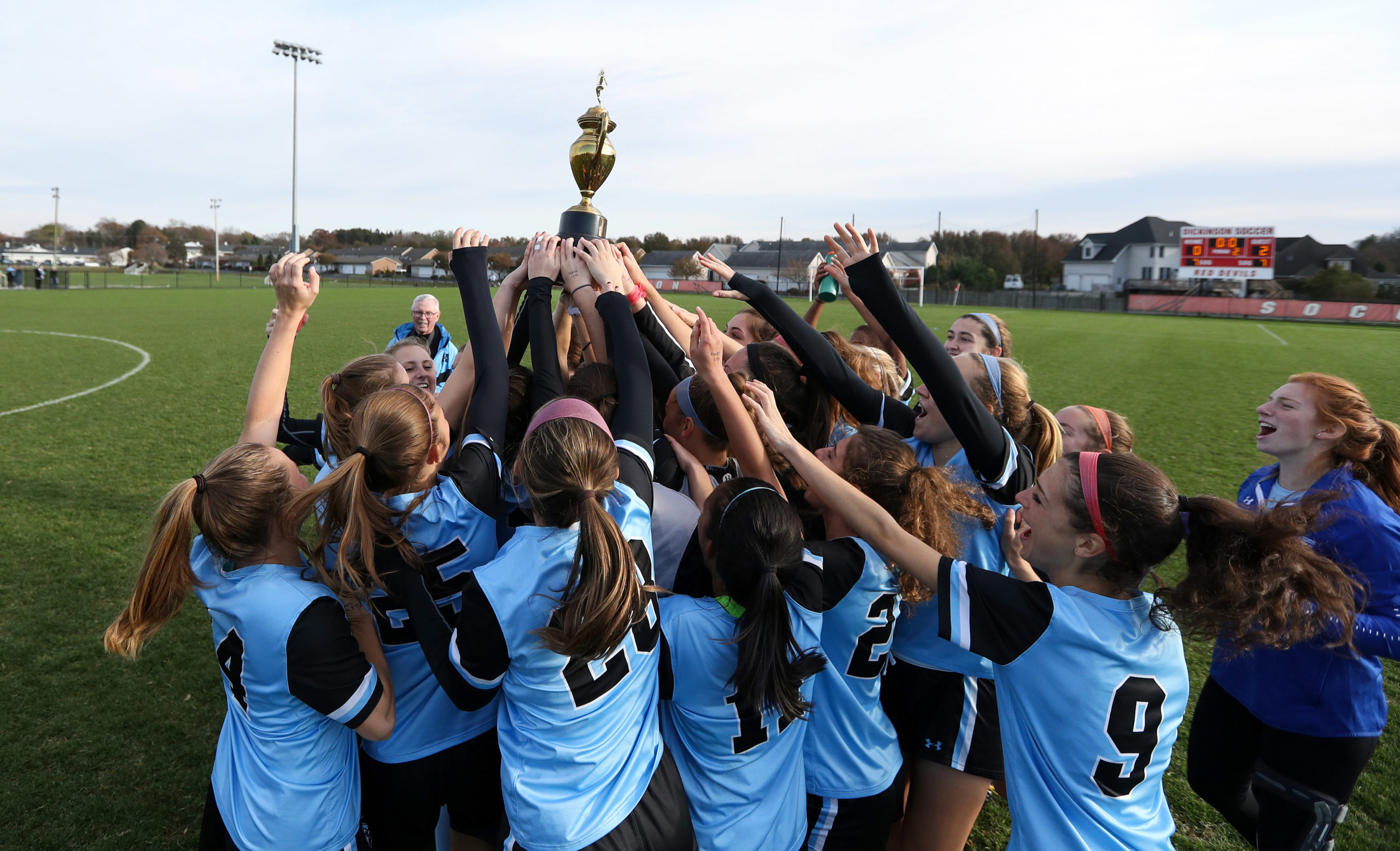
ABOUT THE AUTHOR
Jenny Zwerling is a rising sophomore at Johns Hopkins University with a double major in Economics and Psychology. The daughter of Madelin and Andrew Zwerling, Jenny is from Long Island, New York. She has two older siblings Jason and Jordana Zwerling. She attributes her accomplishments in part to the unwavering support and unconditional love she receives from her parents and siblings. She has a strong curiosity about how the brain and human behavior can affect the world of business and technology. When not playing soccer or studying, Jenny loves fashion, graphic design, reading, and all things pertaining to animals. On campus, Jenny is a member of Alpha Phi, works as a consultant for the JHU AMA Chapter (Nest), is part of the layout design team of Marque Magazine, and is the social media chair for GEMS (Girls Expecting More Success).


Janet Riffe
Posted at 13:49h, 13 AugustThis right here is exactly what my 13 year old daughter needed to hear. Thank you so much for sharing your insight. Going to save this and have her read it once a year.
erica
Posted at 14:20h, 13 AugustGlad you enjoyed it, Janet!!